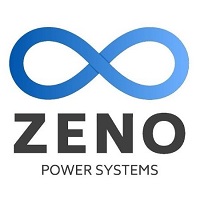Zeno Power's first full-scale radioisotope power systems will be fueled by strontium-90 (Sr-90). The fuel is recycled from a legacy radioisotope generator under a new public-private partnership with the US Department of Energy Oak Ridge Office of Environmental Management (OREM). Zeno has also announced a partnership with Westinghouse to fabricate the heat sources for its systems.
Radioisotope power systems (RPSs) use the heat from radioisotope decay to generate power. They can be used to supply clean energy for applications in off-grid environments. The use of Sr-90 in RPSs is not new. However, historical systems were heavy, which limited their applications. Zeno was established in 2018. It says that its key innovation is a novel design that increases the specific power of Sr-90 heat sources, enabling broad use of its RPSs in space and terrestrially.
Zeno demonstrated its first Sr-90 heat source at Pacific Northwest National Laboratory in October 2023. It aims to commercialize its technology by 2026. Zeno intends to use the Sr-90 from the legacy equipment to deliver on contracts with the US Department of Defense (DOD).
The partnership with OREM will see Zeno use Sr-90 recovered from their Byproduct Utilization Program. The BUP-500 is a five hundred watt radioisotope thermal generator which was built in the mid-1980s at the Oak Ridge National Laboratory. The equipment was never deployed and has remained in storage at the Tennessee site since it was constructed. Before this new partnership, OREM had anticipated that it would remain in storage for another 30 years before it could be disposed of.
OREM and environmental cleanup contractor United Cleanup Oak Ridge (UCOR) recently transported the BUP-500 generator from the Tennessee lab to a commercial nuclear facility for processing. The transfer will accelerate the demolition of the facility where it was previously stored. It will avoid the costs associated with disposal and significantly reduce liability at ORNL, OREM said.
Jay Mullis is an OREM Manager. He said, “This is a win-win scenario that's removing a significant source of radioactivity at a savings to taxpayers, while also supporting nuclear innovation.
Tyler Bernstein is a Zeno co-founder and CEO. He said, “This public-private partnership enables us to transform legacy radioactive material into clean energy, enabling future national security and scientific missions. We appreciate the commitment and support of so many officials from DOE, OREM, and UCOR who made this partnership a reality.”
